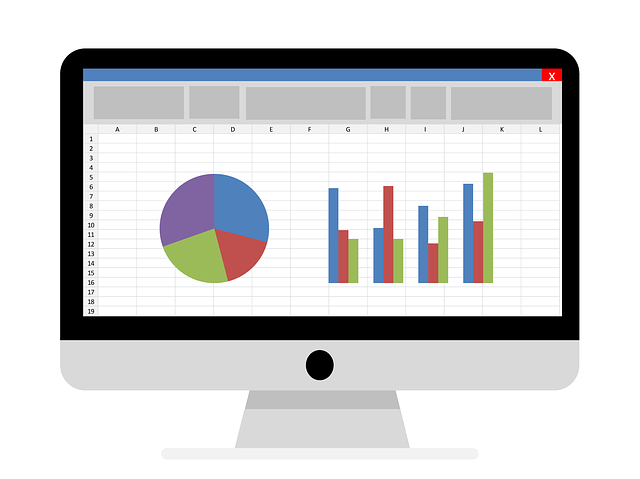Signs You’ve Outgrown Excel for Budgeting and Planning
How did you know that you’ve outgrown excel?
Here at Pimbrook, we’re huge fans of the Microsoft Office suite, and are regular users of PowerPoint, Word and Excel. The latter, in particular, is a huge favourite of SME’s, particularly in the areas of budgeting and planning. It’s little wonder, as it’s super-easy to use and is a great way of collating and sharing information within the company. But sooner or later, the time comes when you start to outgrow it, and when there are better options available to you – such as the Sage 50 suite or other appropriate accounting software for small business – if you want to develop a more strategic approach to budgeting and planning. Here are some of the tell-tale signs to look out for.

1. You’ve probably outgrown excel, if you’re working silly hours. For companies who manage budgets in Excel, there’s a lot cutting and pasting involved, not to mention rolling up data, changing formulas, creating links etc. If you find that this work is cutting into your weekends or evenings, then maybe it’s time to try and reclaim those valuable hours by moving to a slicker and easier-to-use form of accounting software for small business such as Sage 50.
2. You’ve probably outgrown excel, if errors are starting to creep in. One of the big plus factors of Excel is that it’s highly accurate. But what if there’s human error involved? What if you input an incorrect formula? Think of how bad you’d feel at a board presentation if your figures were challenged – and you were found to have been at fault? The alternative is to look for an accounting software for small business solution like Sage 50 that lets you more easily calculate various KPI’s or metrics such as expenses, cash flow etc.
3. You’ve probably outgrown excel, if sensitivities are being breached. Very often, a spreadsheet may include highly sensitive information. This could be anything from company turnover, staff salary levels, or even personal information such as staff contact details. It’s essential that such information is kept away from unauthorized prying eyes. The bottom line is that when you’re dealing with super-sensitive data, maybe it’s time to look for a more secure form of information storage, collation and dissemination – like Sage 50 or a similar accounting software for small business.
4. You’ve probably outgrown excel if, you’re the only one who understands the budgeting or forecast model. One of the big problems with a tool like Excel is that it can sometimes become the ‘plaything’ of one or two staff members, and the ability to understand it is not shared with the broader company. And this is all very well until the one or two people who understand Excel move on to pastures new and leave a huge knowledge deficit in terms of how to manage budgeting or planning in an automated fashion. You can avoid this with accounting software for small business like Sage 50, which is intuitive to use and comes with a full support option.
5. You’ve probably outgrown excel, if there’s an issue with multiple versions. By definition, a spreadsheet is meant for sharing. It contains information that can be used by multiple stakeholders in the company, and in many cases, input from some of those staff members is expected. But what happens when a number of people start making changes at the same time? It can become a form of ‘version hell’, with nobody knowing which version they should be commenting on. There should be only one master version of any budget or plan for your company, and if you find that this is not the case, then maybe it’s time to move on to a newer and better accounting software for small business solution like Sage 50.
6. You’ve probably outgrown excel, if there’s a problem with sharing via email. One of the most common ways of sharing an Excel sheet is via email. But what happens when someone can’t put their finger on that spreadsheet that you sent them last week? More than likely, they contact you again and ask you to resend it. In other words, YOU become the problem-solver, taking hours out of your week that could better be spent elsewhere. If this is happening in your organization, then maybe a dedicated budgeting or planning tool is more appropriate, letting everyone have easy and instant access to a portal where all data sheets will reside. Sage 50 offers this alternative accounting software for small business functionality.
7. You’ve probably outgrown excel, if you’re only looking backwards and not forwards too. Sometimes, you can be so busy preparing spreadsheets that you’re solely focused on what’s happened in the past rather than what’s coming down the line at you. Data should always be used as a way of understanding what’s happening in your business, and letting make the sort of short, medium and long-term plans that will see your business thrive. One of the most powerful ways of using data is creating a range of ‘what if’ scenarios, letting you see what would happen if you took a number of different courses of action, e.g. hiring new sales staff or investing in new equipment. Sage 50 offers you this option and is just one of the many benefits that this form of accounting software for small business offers.
8. You’ve probably outgrown excel, if there are delays in presenting data. For most companies, data is supplied by numerous members of staff, e.g. your sales staff or your marketing staff. And one of the problems with Excel arises when some – or many – of those staff are late with inputting their data. When you eventually receive it, you have to sort any errors, double check it with them, go through a cut and past operation etc., and then eventually present your final report. By that stage, however, you may he half-way through the next month, so your company has wasted two weeks while the information was being collated – instead of using a more sophisticated accounting software for small business package such as Sage 50.
If you find that any of these scenarios apply to your business, then maybe a move to accounting software for small business like Sage 50 is on the cards? It gives you greater levels of control, greater levels of collaboration, and greater levels of security. And when you consider how much time and effort it can save you, most businesses find that it pays for itself many times over each year.













